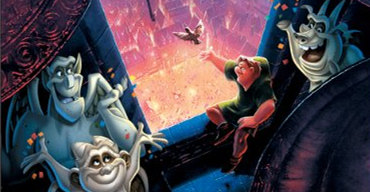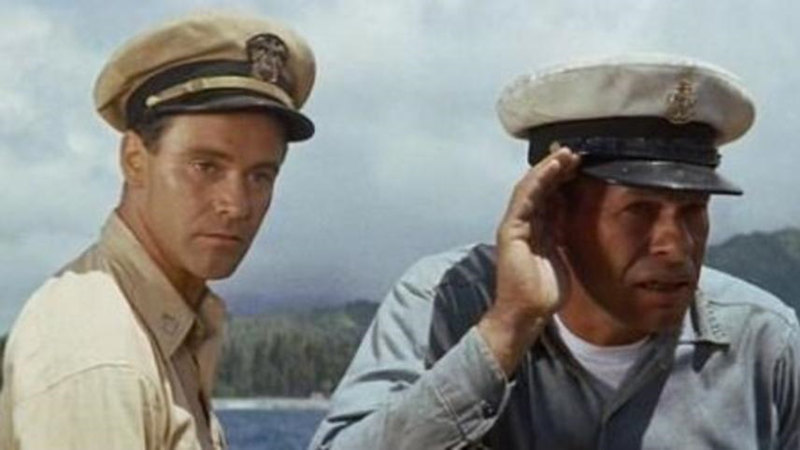TV and film adaptations of successful children’s books can be dicey. What makes for a good read sometimes doesn’t make for compelling film or TV show. Things have to be changed, things have to be cut, and when you do that you run the risk of alienating hardcore fans, no matter how small they may be.
But the Saturday morning cartoon version of The Magic School Bus books managed to capture not only the spirit of the books, but the characters and details that made them the fun mixture of science lessons and fiction that hooked readers in the first place.
Scholastic published the initial Magic School Bus book in 1986, followed by 11 others in the series, plus another 20 chapter books, more than 30 Level 2 Readers, and more than 30 Science Readers. When, in 1994, the animated series debuted, it became one of the top-rated PBS shows for schoolchildren. Not surprisingly, the series had a long run, earning nine Daytime Emmy nominations and winning in 1995 for Outstanding Performer in an Animated Program (Lily Tomlin, as Miss Frizzle). All 52 episodes are contained in this set of eight single-sided DVDs, housed in individual slim clear plastic keep cases and tucked inside a sturdy cardboard slipcase.
Miss Frizzle (Tomlin) was the kind of teacher everyone wished they had. She was a glass half-full, can-do adventurer who saw teaching moments in every moment. Rather than rely on lectures or read-and-discuss methods, she believed in hands-on learning—even if the subject was dinosaurs or the solar system. That’s where the Magic School Bus came in. At her direction the anthropomorphic yellow bus would transform into a spaceship or submarine or miniaturized transport, whatever was needed to put them in the thick of things. The books hint that Miss Frizzle teaches third grade, but while I don’t recall her class ever being identified on the TV series, the students appear to be either fourth or fifth graders, despite the show being pitched younger—second or third grade— as is often the case with TV programming.
Miss Frizzle and her students—Carlos (Daniel DeSanto), Keesha (Erica Luttrell), Phoebe (Maia Filar), Dorothy (Tara Meyer), Wanda (Lisa Yamanaka), Ralphie (Stuart Stone), and Tim (Max Beckford/Andre Ottley-Lorant)—set off on an adventure, and then something typically goes wrong. Either the bus has a mind of its own, or there’s some external factor that creates momentary panic. But Miss Frizzle remains sunny and unperturbed no matter how dire the situation seems to the students, and that inspires confidence. The way her character is drawn reminds me somewhat of a younger Mrs. Garrett from “The Facts of Life” sitcom. Providing comic relief (and an additional cartoon element to further defuse any tension little viewers might experience) is the class pet lizard, named, appropriately, Liz.
Fans of the book series will be pleased that the formula is followed almost exactly, and the classroom kids have enough distinctive personality traits to make them not just a face in the crowd. And of course the episodes are instructional (even parents will learn something) and fun, with a different topic each time:
Gets Lost in Space (solar system)
For Lunch (digestion)
Inside Ralphie (germs)
Gets Eaten (food chains)
Hops Home (habitat)
Meet the Rot Squad (decomposition)
All Dried Up (desert adaptation)
In the Haunted House (sound)
Gets Ready, Set, Dough (kitchen chemistry)
Plays Ball (forces)
Goes to Seed (seeds)
Ants in Its Pants (ants)
Kicks up a Storm (weather)
Blows Its Top (volcanoes)
Flexes Its Muscles (body mechanics)
The Busasaurus (dinosaurs)
Going Batty (bats)
Butterfly and the Bog Beast (butterflies)
Wet All Over (water)
In a Pickle (microbes)
Revving up (engines)
Taking Flight (flight)
Getting Energized (energy)
Out of This World (space rocks)
Cold Feet (warm vs. cold blooded)
Ups and Downs (floating/sinking)
In a Beehive (honeybees)
In the Arctic (heat)
Spins a Web (spiders)
Under Construction (structures)
Gets a Bright Idea (light)
Shows and Tells (archaeology)
Makes a Rainbow (color)
Goes Upstream (migration)
Works Out (circulation)
Gets Planted (photosynthesis)
In the Rain Forest (rain forest ecology)
Rocks and Rolls (water erosion)
Holiday Special (recycling)
Meets Molly Cule (molecules)
Cracks a Yolk (eggs)
Goes to Mussel Beach (tidal zones)
Goes on Air (air pressure)
Gets Swamped (wetlands)
Goes Cellular (cells)
Sees Stars (stars)
Gains Weight (gravity)
Makes a Stink (smell)
Gets Charged (electricity)
Gets Programmed (computers)
In the City (critters)
Takes a Dive (coral reefs)
The episode about computers feels dated, but most of the other science lessons are timeless, and “The Magic School Bus” can be watched an appreciated by children as young as three years old, if parents want to give them a head start and the attitude that learning can be fun. This is an inventive, fast-paced series. But by the time they’re old enough to be in Miss Frizzle’s class, they’ll have outgrown it. I would recommend “The Magic School Bus” for children between the ages of three and seven. Total run time is 22 hours.
Video:
“The Magic School Bus” looks like the rest of the offerings from Scholastic. Once you get past a rough title sequence (with its memorable theme song sung by Little Richard) the picture sharpens and there’s less noise. Backgrounds still have a slight level of noise on the episodes, but the eyes quickly adjust. Colors are as bright as when the show first aired. “The Magic School Bus” is presented in 1.33:1 aspect ratio.
Audio:
The audio is a Dolby Digital 2.0 that is fairly free of distortion, but it’s mostly a functional track. Don’t expect a lot out of it other than delivery of dialogue. There’s a Spanish language option for all the episodes as well.
Extras:
Included is a 24-page activity booklet and parents’ guide with multiple indices so it’s easy to find an episode by topic, title, or order of airing. Four pages offer suggestions on “Fossil Fun,” “Dinosaurs in Your Backyard,” “Shoebox Dig,” and “Eruptions of Color.” Then there are 10 fact-filled pages to color, followed by episode descriptions and indices and tips for viewing.
Bottom line:
This is a nice set from Scholastic. Like “Sesame Street,” “The Magic School Bus” is one of those iconic TV shows that can turn children into lifelong learners. Teachers show episodes in the classroom all the time, but it’s also entertaining enough for home play and replay. It’s one reason why the series has earned the Parents’ Choice Gold Medal.


